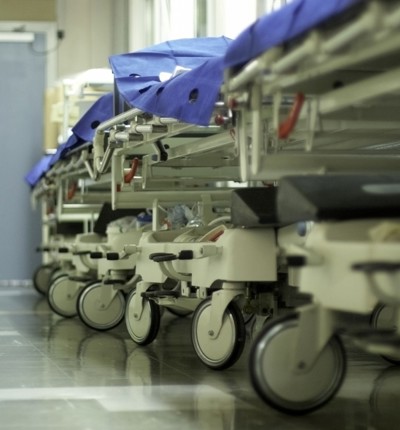
Six figure out-of-court settlement agreed after patient suffers stroke during cerebral angiogram
Six figure settlement successfully negotiated with Imperial College Healthcare NHS Trust on behalf of a now 67-year-old woman who suffered a stroke after an x-ray machine malfunctioned during an angiogram procedure.
Posted on 22 November 2018
In January 2011, C suffered a subarachnoid haemorrhage. Having initially made a good recovery, she subsequently underwent two cerebral catheter angiogram procedures at Charing Cross Hospital to check for anomalies, such as aneurysms, in her brain's blood vessels.
A cerebral catheter angiogram involves threading a catheter into the brain and using a contrast dye in conjunction with x-rays to produce very clear images of the brain’s blood vessels. As it is a foreign object inside the body, there is a risk that the blood will clot around the tip of the catheter. As such, the catheter tip is regularly (or continuously) "flushed" with a solution to minimise this risk. As with many procedures involving the brain, the patient is kept awake and fully alert throughout.
C’s initial angiogram did not reveal anything suspect and so she was required to undergo a repeat procedure. About an hour into her second angiogram, the x-ray screening equipment malfunctioned and had to be restarted. During this time, C began to suffer a stroke, most likely due to the formation of a clot on the tip of the catheter.
Suddenly, C found herself unable to speak or move to notify the medical team around her that something had gone terribly wrong. The medical team rebooted the equipment and resumed the angiogram, unaware of C’s condition. A period of between 17 and 33 minutes passed, during which C was subjected to terrifying thoughts, thinking that she had died and would never see her loved ones again. Eventually, the angiogram operator asked C to move her head but noticed that she could not respond. The stroke team was called and C was put under a general anaesthetic so that the clots could be treated. This procedure was not entirely successful, however, and a further haemorrhage occurred and the procedure was halted.
Initially, C could not speak or write. As she lay in the hospital, unable to tell her family what had happened during the procedure, she could only watch and listen as the medical staff informed the family that there had been a complication, but with no mention of the malfunction.
C slowly recovered from the physical effects of the stroke and was, eventually, able to tell her family her account of the procedure. She continued to suffer right-sided weakness, speech impediments, subtle cognitive impairments and altered senses of taste and smell, but these physical sequelae have largely (although not fully) resolved over time.
Psychologically, however, C was left with severe Post Traumatic Stress Disorder. She has frequent nightmares and flashbacks, triggered by everyday things such as bright lights (which remind her of the angiogram suite). She also experienced growing depression and anxiety, becoming socially withdrawn and distrusting of others. She was unable to continue her work as an artist and entrepreneur and relied increasingly on her daughter for care and support.
C sought answers from Imperial College Healthcare NHS Trust and instructed Leigh Day’s Sarah Campbell to act on her behalf. The Trust denied any liability for C’s injuries, but they agreed to settle the case out of court for a six-figure sum, much of which will go towards funding C’s psychological and physical rehabilitation and care.
Following the settlement, C said:
“I’m grateful for the expert advice and support I received from Leigh Day and would like to thank them for believing in me from the start and understanding that as well as physical symptoms of damage there are non-visible psychological injuries that have to be considered.”
Michael Roberts, at Leigh Day who, along with Sarah Campbell, represented C, commented:
“One particularly noteworthy aspect of this case is that, had the procedure been recorded, any dispute as to what took place in the angiogram suite would have been avoided and this may have brought about a quicker resolution to the case. Our client feels strongly that patients in future should have the option of having their procedures recorded if they wish and there certainly would appear to be potential benefits to this."

